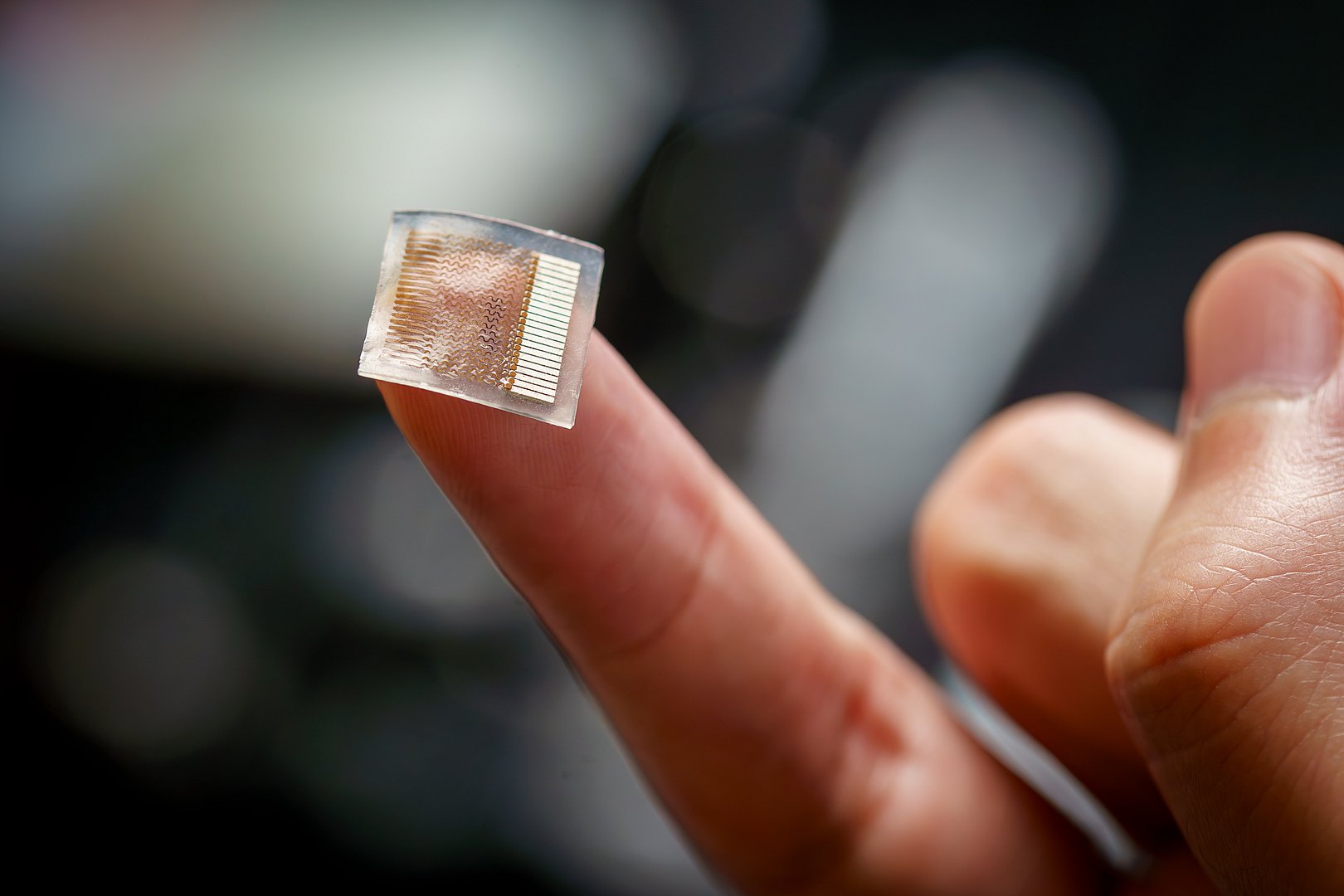Get Healthy!

- Carole Tanzer Miller
- Posted November 21, 2024
Skin Patch Could Monitor Your Blood Pressure
A wearable patch the size of a postage stamp that can monitor blood pressure continuously could soon help people manage their hypertension.
Researchers at the University of California, San Diego, who developed the wearable ultrasound patch report Nov. 20 in the journal Nature Biomedical Engineering that it has worked well in tests with more than 100 patients.
Maintaining a normal blood pressure -- 120/80 -- helps prevent many illnesses, from heart disease and stroke to kidney problems, dementia and vision loss, so many patients with high blood pressure use a cuff-and-meter device to track their levels.
"Traditional blood pressure measurements with a cuff, which are limited to providing one-time blood pressure values, can miss critical patterns," said study co-author Sai Zhou, who recently received his doctorate degree from the University of California, San Diego's Jacobs School of Engineering.
"Our wearable patch offers continuous stream of blood pressure waveform data, allowing it to reveal detailed trends in blood pressure fluctuations," he added in a university news release.
The soft, stretchy patch adheres to the skin and is worn on the forearm. An array of tiny transducers inside it send and receive ultrasound waves that track changes in the diameter of blood vessels. These changes are then converted into blood pressure values.
Developers said the patch produces results comparable not only to those of a standard blood pressure cuff, but also to a highly accurate but invasive device inserted into an artery in intensive care units and operating rooms to continuously monitor pressure.
In tests involving four patients who were in intensive care after surgery and 21 who underwent cardiac catheterization, measurements from the patch were close to those from the arterial line. That, researchers said, shows its potential as a noninvasive alternative.
They have tested the new patch under a variety of conditions -- including daily activities such as cycling, raising an arm or leg, meditating, eating and transitioning from sitting to standing. In all cases, readings closely matched those from blood pressure cuffs.
"Blood pressure can be all over the place, depending on factors like white coat syndrome [being in a doctor's office], masked hypertension, daily activities or use of medication, which makes it tricky to get an accurate diagnosis or manage treatment," said Sheng Xu, a professor of chemical and nano engineering at UC San Diego who developed the patch. "That's why it was so important for us to test this device in a wide variety of real-world and clinical settings."
His team now plans to refine the device and conduct large-scale clinical trials.
More information
There's more about home blood pressure monitoring at the American Heart Association.
SOURCE: University of California, San Diego, news release, Nov. 20, 2024
